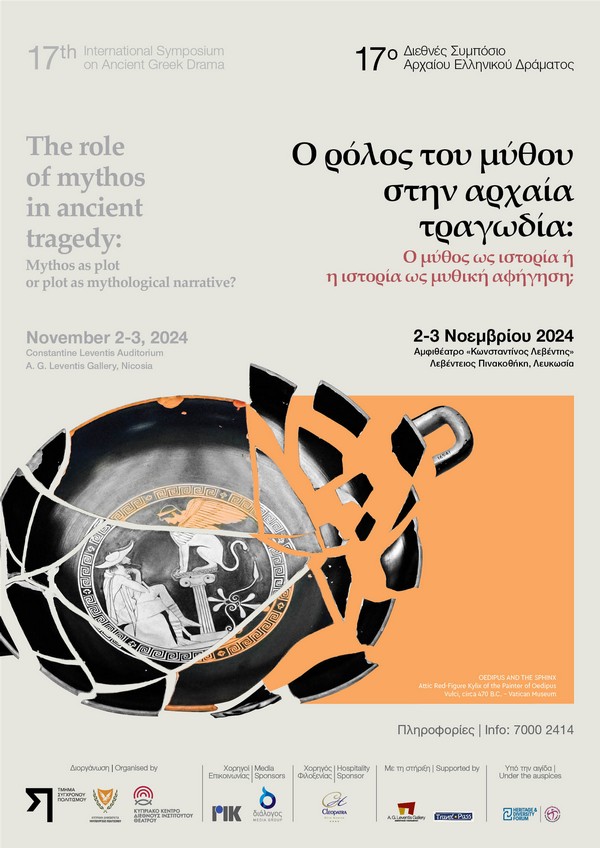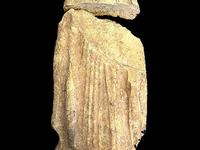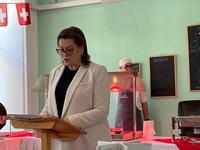Press Releases

10-10-2024 13:21
17th International Symposium on Ancient Greek Drama
The role of mythos in ancient tragedy: mythos as plot or plot as mythological narrative?
The Department of Contemporary Culture of the Deputy Ministry of Culture and the Cyprus Centre of the International Theatre Institute (CCOITI) co-organise the “17th International Symposium on Ancient Greek Drama”, which will be held on Saturday 2nd and Sunday 3rd of November 2024 at the “Constantine Leventis” Auditorium, in the A.G. Leventis Gallery in Lefkosia. The opening of the Symposium will be announced by the Deputy Minister of Culture Dr Vasiliki Kassianidou.
The 17th edition of the Symposium, with the topic of “The role of mythos in ancient tragedy: mythos as plot or plot as mythological narrative?”, aims to examine the role of mythos, both as the structured plot - the 'story' - of an ancient tragedy and as the scope of the ancient tragic poet's compositional abilities to render the 'mythological narrative' through the plot-mythos.
Ancient Greek tragedy composes a magnificent mosaic of variations on relatively few mythological and typological themes, constantly recurring but never identical. Accordingly, the “17th International Symposium on Ancient Greek Drama” will approach mythos in ancient tragedy, and specifically its consistency, intertextuality, variations, enhancement and evolution in tragedy, over time. At the same time, the Symposium seeks to focus on the analysis of mythos in ancient Greek tragedy through semiotic analysis, the interrelation and/or differentiation of the plot from the archetypal, the structural elements of the narrative, mythos’ various versions in tragedy and its multiple aspects on a linguistic, cultural, conceptual and ideological context.
The objective of the Symposium’s organisers is to present a variety of theoretical approaches, from dramatological analysis, theatre semiotics, philosophy, and sociology to theories of intertextuality, reception, etc. Moreover, the participation of theatre practitioners, who will present their thoughts, ideas, insights, experiences and approaches on the subject, through their personal involvement in the on-stage presentation of ancient drama, is considered an essential contribution.
16 reputable lecturers, both academics and practitioners, from Croatia, Cyprus, France, Georgia, Greece, Hungary, Slovenia, the United Kingdom and the United States of America are participating in this year’s two-day Symposium proceedings.
During the first day of the Symposium, on Saturday, November 2, (10:00 – 12:30 and 16:00 – 19:00), 11 academics will present their analysis of the approaches of mythos in ancient Greek tragedy:
- Theodoros Grammatas (Greece), Emeritus Professor of Theatre Studies, Department of Pedagogy and Primary Education, National and Kapodistrian University of Athens (NKUA). Associate Professor at the B.A. Programme “Studies in Hellenic Culture” of the Faculty of Humanities and Social Sciences at the Open University of Cyprus,
- Levan Khetaguri (Georgia), Professor and Director of the Arts Research Institute of Georgia,
- Svetlana Slapšak (Slovenia), Retired Professor of Anthropology of Ancient Worlds, Anthropology of Gender and Balkanology, Director of IBAMESC (Institute for Balkan and Mediterranean Studies and Culture), Ljubljana,
- Menelaos Christopoulos (Greece), Emeritus Professor of Ancient Greek Literature, University of Patras,
- Dubravka Crnojević-Carić (Croatia), Senior scientific associate, Assistant Professor, University of Zagreb, Academy of Dramatic Art in Croatia,
- John C. Gibert (U.S.A.), Professor of Classics at the University of Colorado Boulder, in the United States of America. Also, Prof. Gibert is a Euripides expert who contributed to the significant deciphering and interpretation of previously unknown fragments of two lost Euripidean tragedies ("Polyidus" and "Ino"),
- Rosa Andújar (U.K.), Senior Lecturer in the Liberal Arts and Classics Departments at King’s College London
- Konstantinos Loukopoulos (Greece), PhD Candidate, Department of History and Archaeology, National and Kapodistrian University of Athens (NKUA),
- Romain Piana (France), Professor of Theatre Studies at Sorbonne Nouvelle University, Paris and Associate Director of the Institut d’Études Théâtrales,
- Adam Berzsenyi Bellaagh (Hungary), Director and Theatre Manager of the Budaörsi Latinovits Színház,
- Vayos Liapis (Cyprus), Professor of Ancient Theatre and its Reception, Open University of Cyprus.
On Sunday, November 3, a Roundtable Discussion will take place (10:00 - 13:30), during which five theatre practitioners will present their thoughts, knowledge and insights on the topic through their personal involvement in the on-stage presentation of ancient Greek tragedy drama: Magdalena Zira, Director, Nikaiti Kontouri, Director, Lea Maleni, Actress, Director, Aris Biniaris, Actor, Director and Elena Triantafyllopoulou, Theatrologist, Dramatist. Konstantinos Loukopoulos, Archaeologist, Writer, Founder and creator of the project “The Mythologist”, will participate as a guest in the Roundtable Discussion. Christos Georgiou, Theatrologist, Director of the CCOITI and Kyriaki A. Ioannidou, Doctor of Classical Philology, Cultural Officer at the Department of Contemporary Culture of the Deputy Ministry of Culture, will coordinate the discussion.
The “International Symposium on Ancient Greek Drama” began in 1990 as an activity of the then Committee of Cultural Identity and Development of the International Theatre Institute (ITI) and has since been organised, regularly every other year, by the Department of Contemporary Culture of the Deputy Ministry of Culture and the Cyprus Centre of the International Theatre Institute (CCOITI).
The themes, that have been examined so far in the "International Symposium of Ancient Greek Drama", demonstrate the broadness and multiplicity of perspectives from which ancient drama has been approached not only as a text but also as a stage act. In its long course, the Symposium has managed to secure the participation of personalities of international standing both from the academic and the theatrical community but primarily has contributed to establishing an effective dialogue.
It is noted that the proceedings of the Symposium are open to the public with free admission, while there will be simultaneous interpretation from Greek to English and from English to Greek.
(EK/NZ)
Relevant Press Releases

22-11-2024 11:25
The “Royal Chapel” of Agia Aikaterini at Pyrga closed for the public



04-11-2024 13:18
Announcement by the Cyprus Academy of Sciences, Letters, and Arts



